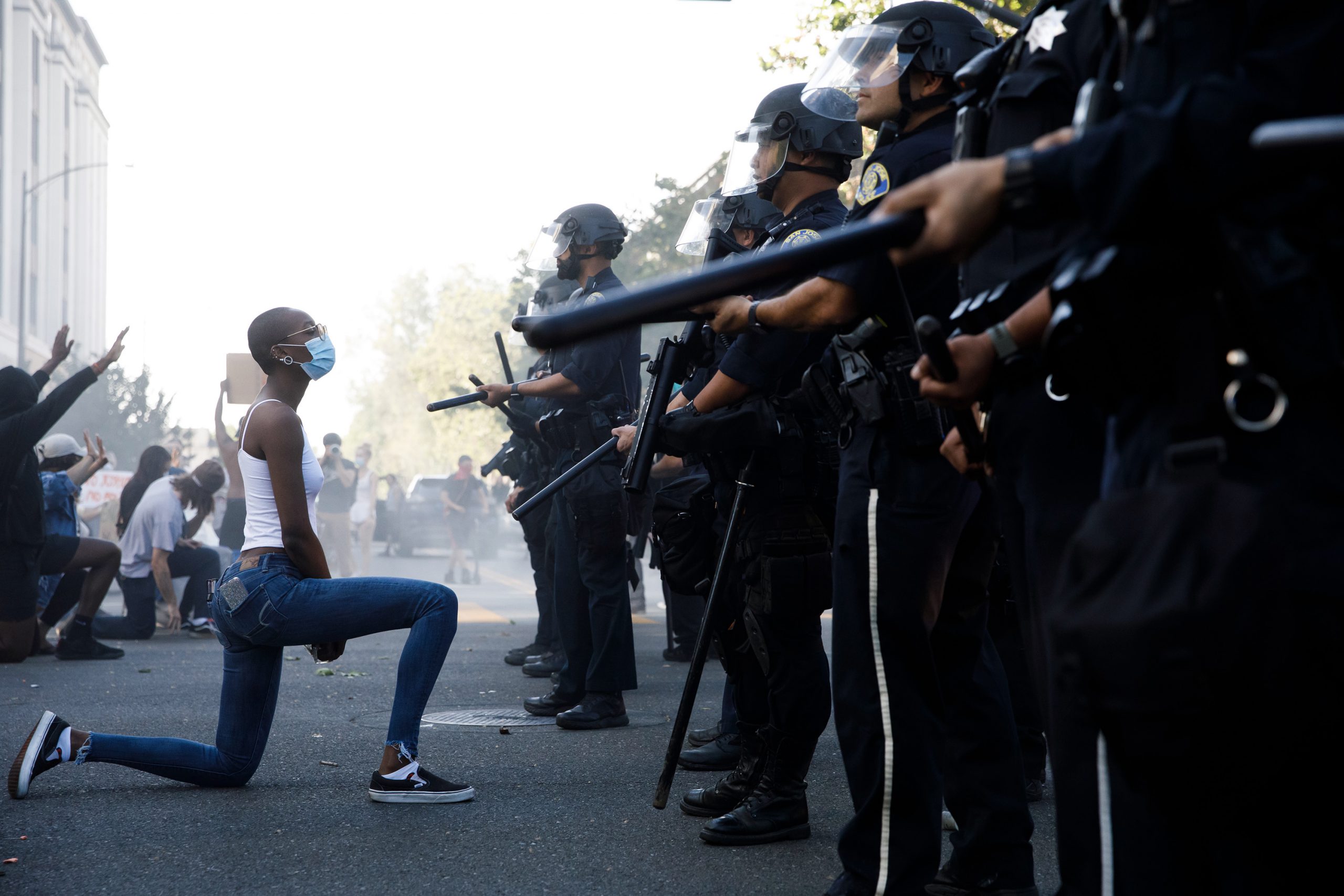Protesters around the world are continuing to demand justice for 46-year-old George Floyd, who died one week ago under the knee of a white police officer in Minneapolis while other officers restrained his body.
George Floyd’s death is a painful reminder of the African-American struggle against systemic racism. African-Americans have been the primary target of police brutality in the United States. At least 100 African-Americans, including Trayyon Martin, Michael Brown, Sandra Bland and Eric Garner, have died at the hands of the police since 2014 alone.
- African-Americans are more likely to get fatally shot. In 2019, they accounted for more than 23% of the 1,000+ fatal shootings by the police.
- African-Americans are imprisoned at five times the rate of white Americans.
- Over 17% of African-American victims were unarmed when they were killed in police shootings between 2013 and 2019, the highest among all races.
- African-Americans are arrested at a much higher rate than white Americans for drug abuse although surveys show drug use at similar levels.
- In more than 98% of the shootings between 2013 and 2019, officers were not charged with any crime.
Figures such as these are a stark reminder that police brutality against African-Americans in the United States seems to have no consequences. Why has it been so easy for a white man with a badge to end the life of a black person?
This is the reality that people are protesting.
Martin Luther King Jr. said it best in 1966:
“The law cannot make a man love me, but it can restrain him from lynching me, and I think that’s pretty important also. As long as injustice is around, it will be necessary to bring that injustice to the surface. As long as you have consciences that will allow themselves to doze and go to sleep, it is necessary to do something to sear the conscious, to dramatize the issue, to call attention to it.”
Martin Luther King Jr.
Last week, George Floyd repeatedly cried out “I can’t breathe” while a police officer knelt on his neck for over eight minutes. Video footage of the incident triggered protests in the United States and across the globe. Hundreds of thousands of Americans are taking to the streets amid a deadly pandemic to demand an end to impunity. “No justice, no peace” and “I can’t breathe” is echoing from the heart of Minneapolis to the destroyed walls of Idlib, Syria.
The ‘Black Lives Matter’ movement has opened a window of opportunity where lasting social change is possible. It has once again forced the United States to confront its deep-rooted problems with racial inequality. In their own words, the movement was founded with the aim of building “a world where Black lives are no longer systematically targeted for demise.” The movement was born in 2013, after George Zimmerman who shot and killed an unarmed black teenager, Trayvon Martin, was acquitted of his murder.
Protesting injustice is your constitutional right. The First Amendment protects this sacred right:
“Congress shall make no law respecting an establishment of religion, or prohibiting the free exercise thereof; or abridging the freedom of speech, or of the press; or the right of the people peaceably to assemble, and to petition the government for a redress of grievances.”
So why are police departments across the United States using rubber bullets on protestors that can blind, maim or kill? Why have the police arrested over 9,300 protesters?
Being able to publicly speak out against perceived injustices and urge action without fear of being silenced is the cornerstone of any successful democracy. A new report by PEN America documents an alarming rise of 116 state-level bills introduced since 2015 that seek to regulate and punish public protests. The bills appear to be designed to further restrict individuals from exercising their protest rights due to the fear of being arrested.
Let’s be clear here – marginalised communities are disproportionately impacted by criminal penalties and anti-protest laws. Everyone deserves for their voice to be heard. Through protest, marginalised communities can demand accountability, defend human rights, and raise awareness.
Today, when freedom and human rights are at stake, activists around the world push for social justice. While there is a gap between the promise of the accessibility to protest, and the reality, the fight for the right to protest continues.

